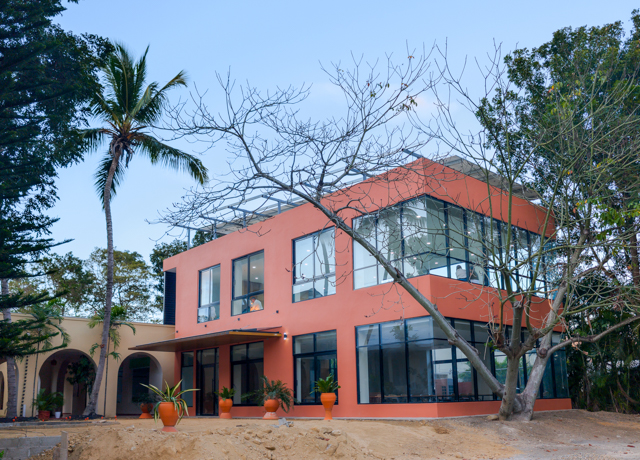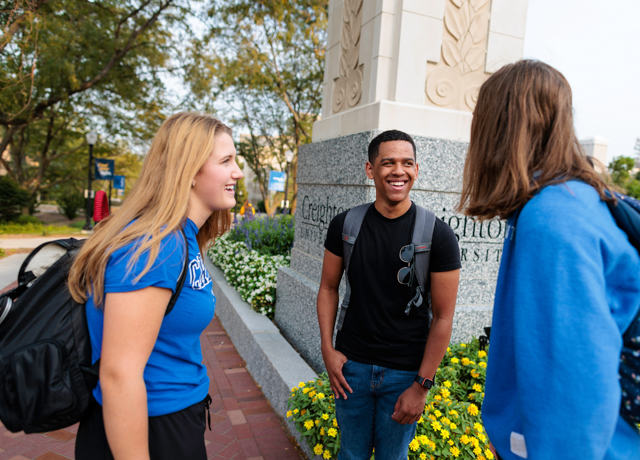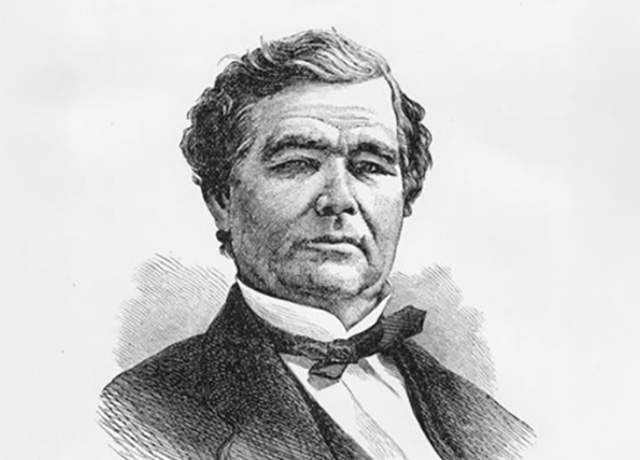Featured Testimonial About Creighton University
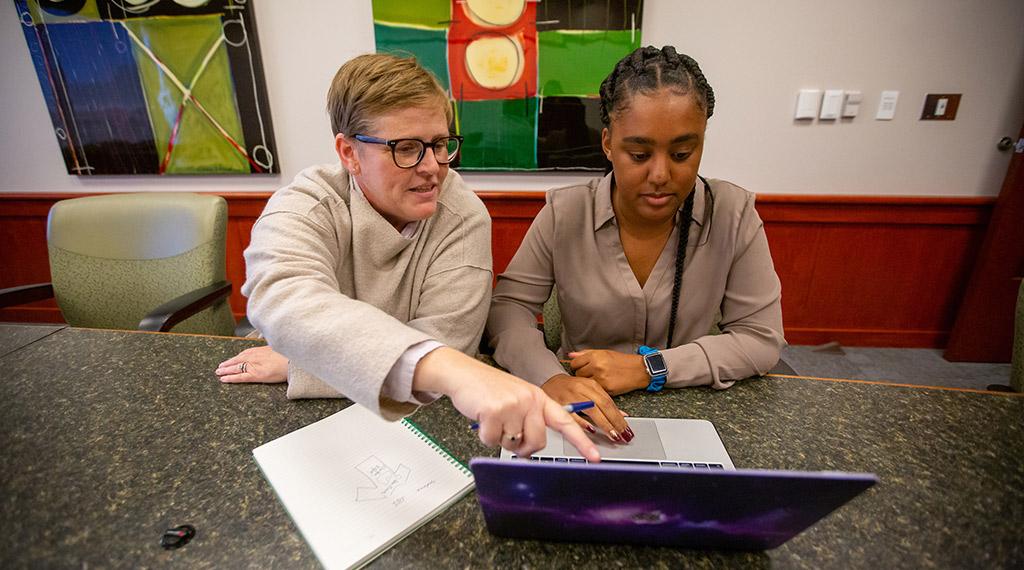
The clinic’s mission is to create better outcomes for everyone involved, most especially the children we’re serving.
By Micah Mertes
When representing a child or teen charged with a crime, says Joy Suder, JD’08, one of the first hurdles is convincing your client that you’re on their side.
“They see a person in a position of authority, and they think, ‘She’s going to get me in trouble,’” says Suder, a former Douglas County assistant public defender. “I have to show them that, ‘No, I’m not like that. My job is to get you through this case without getting you into more trouble, and I need you to help me do that.’”
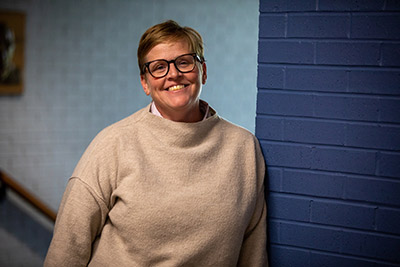
As much as anything else, defending the rights of children is about showing them that you’re in their corner, being the person they can confide in and reach out to at all times (often via text or Snapchat). This relationship is holistic and ongoing.
“It doesn’t end after trial,” Suder says, “because the cases continue on until the court determines the child has been rehabilitated or the child turns 19 — whichever comes first.”
It’s this holistic approach that Suder brings to Creighton as assistant law professor and director of the School of Law’s newly established Juvenile Justice Clinic.
The grant-funded clinic will serve as a small firm, with student-attorneys providing free legal services for youth with open cases in the Separate Juvenile Court of Douglas County. The clinic is funded for five years, thanks to a nearly $1 million gift from anonymous donors.
The clinic will be staffed each semester by up to eight third-year law students certified as student-attorneys under the Nebraska Supreme Court student practice rule. Each student will enroll in a semester-long class, receive intensive training to advocate for their clients and serve as lead attorneys on a variety of cases. Students will be responsible for all aspects of their assigned court cases.
“With the clinic, we hope to set a foundation where graduates have a baseline skillset to know where to start, how to go forward, what questions to ask,” Suder says. “The clinic’s mission is to create better outcomes for everyone involved, most especially the children we’re serving.”
School of Law student Sidnea Brown, among the clinic’s first cohort, says she’s eager to gain hands-on experience in the legal field she’s considering. The Omaha native has been exposed to some aspects of juvenile justice through previous experiences, working as a law clerk for the nonprofit Nebraska Appleseed and a legal intern with the Project Harmony Child Protection Center. Her experiences advocating for children led her to the clinic.
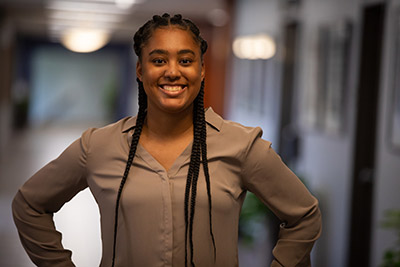
“Through the clinic, I’ll be getting that experience that helps me learn how to build relationships with my clients, to gain their trust and meet their needs,” Brown says. “We’re learning the law in the classroom, but we’re getting to apply the law in real-world scenarios in the courtroom. To get that experience before I graduate is amazing.”
With the help of student-attorneys like Brown, the clinic aims to help reverse a number of concerning trends in the juvenile court system. A 2019 study by Voices for Children in Nebraska, for instance, demonstrated issues in delinquency and status offenses, excessive detention, education needs and racial inequity for youth involved in juvenile court in Nebraska.
The study revealed 52 youths in detention each day, staying 46 days on average. The same study found that prosecution of felony offenses for youths has increased by 142% since 2015. While African Americans represented 12% of the population in Douglas County, they accounted for 55% of people in the juvenile court system.
“On every case I handle,” Suder says, “one of my top goals is empowering my client to know they have a voice and helping them understand how to communicate it as effectively as possible. Whether you’re 11 or 12 or 17, these kids have rights, and our job is to help them flex those rights, even in the face of the disenfranchising policies and structures stacked against them.”
Creighton’s School of Law is well-suited to house a Juvenile Justice Clinic, says Dean Joshua Fershée. The school’s Milton R. Abrahams Legal Clinic serves clients in need through cases in domestic violence, immigration, and civil and housing matters. This experience has helped provide the knowledge and infrastructure for the new clinic.
“Our experiences serving the community and our strong relationships with the judiciary, local attorneys and area nonprofit organizations will allow the new clinic to have an almost immediate impact,” Fershée says. “This is truly an opportunity to live our mission — educating attorneys in the Jesuit tradition of service, ethics and compassion.”
The clinic will employ a holistic approach to juvenile justice, partnering with nonprofits for assessments and referrals for additional support — such as food programs, mental health services and access to education and job training. Eventually, the clinic could serve as a policy model to be replicated throughout Nebraska and across the nation.
The clinic’s holistic approach to caring for every aspect of the client’s needs aligns well with the Ignatian value of seeking justice for all and Creighton’s mission to care for the whole person.
“Every juvenile case is a family case,” Suder says. “It’s not just a discussion of the alleged crime. It’s a discussion about school and housing and meals and health care. Holistically, we ask, ‘Where is this child at physically, mentally, emotionally? What services could help them meet those needs?’”
One especially nuanced aspect of this area of law is balancing parental input with the rights of the child. The child holds attorney-client privilege in every case, and attorneys can divulge information to a parent only if the client permits. Yet to address issues that led to a child entering the system in the first place — and to decrease the likelihood of recidivism — working with the parents or caregivers is essential.
It’s a tricky line to walk for an attorney, Suder says. You learn how to navigate these relationships by communicating to the parent and child that the defense attorney works for the child, and that ethical obligations like zealous advocacy and confidentiality belong to them.
Setting limits with parents helps create trust with the attorney and, in turn, the judicial system itself. It ensures that kids and parents both know the roles and objectives of every player in the courtroom.
Sometimes, Suder’s sons will ask her, “Did you win in court today, Mom?”
But that’s a hard question to answer for someone working in this area of law, she says.
“One thing the student-attorneys in this clinic will learn is that this kind of work is all about redefining your ideas of success and victory. I will sometimes say:
“Today we won because this child wasn’t removed from their home. Today we won because my client made it through a hearing without yelling at their mom. Today we won because my client opened up to me in a way they haven’t before that will help them move forward on a path to a better life.
“These are massive victories.”
